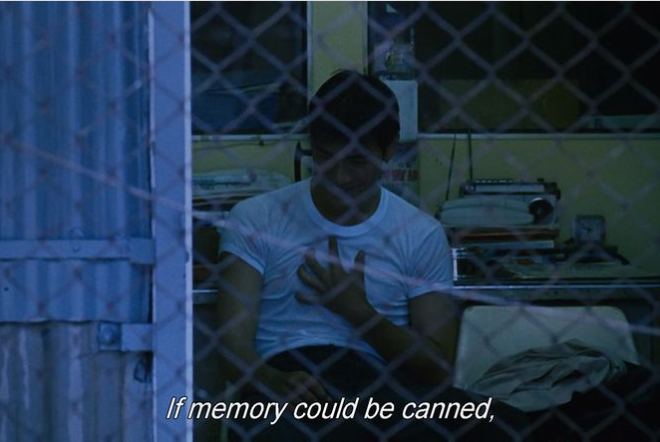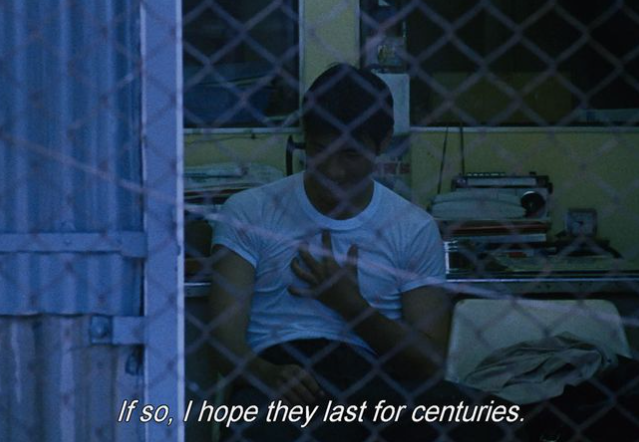Conversation
It Became A Ritual
7/21/2022
Njari Dimario Anderson and Ariel Dong

Ariel Dong:
I think we can start by sharing a little about how we met, how we perceived each other, and how we ended up being as close as we are. Njari Anderson:
I agree. Ariel:
We were both freshmen at RISD, we had the same classes, but we didn’t talk to each other for like, half the semester. And I remember the first time we talked it was 3 am in the studio. You asked me what music I liked. Njari:
Yes! Faye Wong! When I first met you, you were intriguing to me because I wanted to be like you. There was this aura and confidence that surrounded you that I looked up to. I kept saying to myself, “There’s no way I’ll ever be that cool or confident in myself or my work.” I was intimidated by you.
Ariel:
I love that! I love her! I mean, I told you before but I was equally intimidated by you, your silence, and this intense look you always have. I couldn’t even go up and ask “How are you?” You had this drive I had never seen before. As intimidated as I was, I admired you just as much. What I’m interested in is the first time, or what I remember as the first time, our relationship went beyond that. It was when you were going through a breakup...
Njari:
Oh god. [laughs] Ariel:
And I was fighting with a friend, I asked to come over. That was the first time I felt like our relationship became non-transactional. Before that, it was always centered around us competing in the studio, right? We were supportive but competitive, and it was transactional because every time we met, we were both trying to gain something from one another, like how to improve our work by observing the other person.
So up until that night—me coming over to talk, having no expectations of what was gonna come out of it, just wanting to be near you, that was it for me. I felt vulnerable, we sat and shared deep, personal stories. And when I left I was ok not having taken anything away from you.
Njari:
That moment laid the groundwork for our friendship for me. Both of us, in my room, watching Master of None, eating ramen, taking comfort in one another. Ariel:
No, we weren’t eating ramen! We were eating the Insomnia Cookies you ordered. Njari:
Did we? Oh, no you’re right. I ended up eating them all. That moment felt comforting and familiar: eating and watching TV. And as weird as it sounds, that might have been the first time I did that willingly. I remember saying to myself “I am sad,” and then asking if you wanted to watch this stupid show because I wanted to forget about everything.
Ariel:
I wanted to forget, too. I was recognizing how transactional my relationships at RISD were. And started dissociating because it made me realize how lonely I felt. I think you helped me put myself back together, or at least you were a part of what helped me. Regardless, you became a person I trusted, a person who made me feel safe. 
Njari:
I want to second that because I remember repeating “love sucks, don’t do it, it just ends up shitty,” but even as I was saying all these things, in that moment, we were caring for each other. The year after “Cookie Night” wasn’t easy, though. We were together for a semester and a half before school got shut down because of the pandemic. You were in a few places after that: Canada and Singapore. I was still in Providence feeling distant from my family in Florida. And in the confusion of that moment, we became distant from each other.
We started talking again because I came to you wanting to write a book together. I was searching for a way to shorten the distance between us. We needed a portal to each other that went beyond texting and calling. I wanted to be able to document every step of the process of making the book, so we used Are.na.
Ariel:
I mean, now that you mention it, when we started our channel “Antidepressants,” we had already been using Are.na to organize our thoughts. And the funny thing is, when we started writing for “Antidepressants,” we were both thrown into states of confusion that felt similar to our “Cookie Night.” We needed each other. Njari:
Right, but we didn't have a physical space to meet anymore. So the problem was: how do we keep caring for each other under these new parameters? The simple answer would’ve been to just call each other or Facetime, but I hate calling and Facetiming—I’m really hard to reach most of the time. I pitched, “Ariel, I want to write this ‘thing’ with you and I want to read it like a conversation” and I didn’t know what it would be about, but I wanted us to leave something every day—it didn’t matter what it was. All of it could serve as material for something later on.
Ariel:
Right, and it became a kind of collective diary built on call-and-response. I would write about my day, weaving stories and feelings for you to find and you would do the same. It became a ritual in which we built on what the other person wrote. Njari:
Yes! I wanted it to feel comfortable because a lot of the things we ended up talking about were uncomfortable. And I don’t think we would have had the intimate conversations we did if we had them in person. Ariel:
Yeah, I wouldn’t have said most of what I said as well, even on Facetime. I mean, some things got dark, really personal. You’re bound to self-censor when you’re face to face. I remember one of the first blocks you posted, you told me that people are so far apart emotionally and mentally, and you wanted to talk about closeness. And that made me think about confessional poetry, which opened the space for me. Even though neither of us knew what we wanted from it, we went ahead without fear.

Njari:
Yeah, that’s the interesting part, right? Not knowing fully what it would be. I just knew I didn’t want to lose you. At the time, giving you another project to do was the best way to keep you close. I was like “Ariel likes making work,” so they’ll want to work with me—we’re going to work on this together.The first few blocks were these flowery musings on humanity, life, and purpose. But then there was this day when I wrote about being at the beach with a friend, and in the same block, I mentioned that I just found out that my grandmother had cancer. I was trying to process that feeling in the channel. It's strange because I don't talk to anyone about my family, but I knew I was about to experience another great moment of loss. One that felt predestined. My last words to my grandma were: “You’ll always be with me, no matter where you are.” And when I wrote that, I was worried that you would feel like you had to commit to that level of vulnerability.
Ariel:
Yes, that was a big turning point. Before that, most of the channel was me reciprocating to match you. You said you weren’t sure if I’d be able to commit to that level, but I did. I talked about my grandfather, my first love, both incredibly painful, but I talked about it, and I was honest. I didn’t even know that was something I was willing to share at that point. Going back to what you said earlier, “Ariel likes work,” I find that really funny and almost a misunderstanding in some ways, because I like work, but what I love more is you, and people. So when you reached out to work on this project, I wasn’t thinking about the work. I was happy to spend time with you, even if it was digital.
This essay is from the Are.na Annual 2022, themed "portal."
Njari Dimario Anderson is a Jamaican-born American artist studying Sculpture at the Rhode Island School of Design(RISD) and Modern Culture and Media at Brown University. Anderson views the world through the disoriented lens he gained after immigrating to the United States. Forever in a liminal space between the U.S and the Caribbean, Anderson uses his place-hood to investigate the moral complexities embedded in the body: his own and those outside him. In his work, the body is a placeholder for placelessness. Thus, Anderson's work attempts to root him, his body, and his experiences in relationship to the world and people around him to find himself a place of belonging.
Ariel Dong is a visual artist studying at Rhode Island School of Design. They are concerned with creating art in the age of the climate crisis, and draws influences from indigenous animism, non-human sentience, environmental philosophy, and speculative futures. They are fascinated by the role of mythology, language and storytelling in shaping humanity's relationships, perceptions, and beliefs.
Are.na Blog
Learn about how people use Are.na to do work and pursue personal projects through case studies, interviews, and highlights.
See MoreYou can also get our blog posts via email